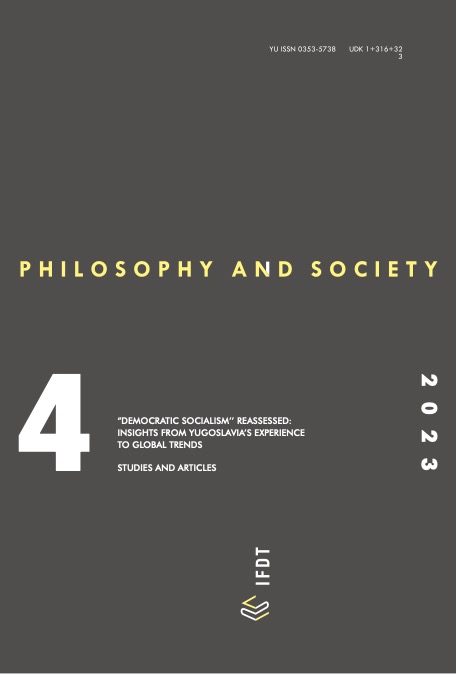THE RISE AND FALL OF DEMOCRATIC SOCIALISM IN YUGOSLAVIA 1948-1972.
THE RISE AND FALL OF DEMOCRATIC SOCIALISM IN YUGOSLAVIA 1948-1972.
Author(s): Milivoj Bešlin, Petar ŽarkovićSubject(s): Political history, Social history, History of Communism
Published by: Institut za filozofiju i društvenu teoriju
Keywords: Yugoslavia; socialism; self-management; democratization; League of Communists; Josip Broz Tito; Marko Nikezić
Summary/Abstract: This article examines the complex trajectory of democratic socialism in Yugoslavia from 1948 to 1972, a period characterized by groundbreaking experimentation and subsequent retreat from socialist ideals. The study begins with Yugoslavia’s 1948 break from Stalin, marking the inception of its independent socialist path, distinct from the Soviet model. It highlights the implementation of innovative policies, particularly the model of worker self-management, reflecting Yugoslavia’s endeavor to marry socialist principles with democratic practices. These policies, initially successful in fostering economic growth and a unique Yugoslav identity, faced internal challenges of ethnic and national complexities and external pressures owing to its non-aligned stance during the Cold War. The article delves into the internal political dynamics and leadership strategies of Yugoslavia during this transformative period, which is a domain that has received less scholarly attention compared to Yugoslav economic and foreign policies. It scrutinizes how Tito and his contemporaries navigated the challenges of maintaining a socialist state while balancing the ideals of democracy with the practicalities of governance. Special attention is given to the interplay between domestic policies and international influences, offering a comprehensive view of the Yugoslav socialist experiment. The decline of democratic socialism in Yugoslavia, culminating in the political shifts of 1972, is portrayed not as an abrupt collapse but as a gradual process, marked by changes in both policy and ideology. The authors conclude that the Yugoslav experience provides valuable insights into the complexities of implementing socialism in a diverse and multifaceted society, illustrating both the potential and limitations of merging socialism with democratic principles.
Journal: Filozofija i društvo
- Issue Year: 34/2023
- Issue No: 4
- Page Range: 550-570
- Page Count: 21
- Language: English

